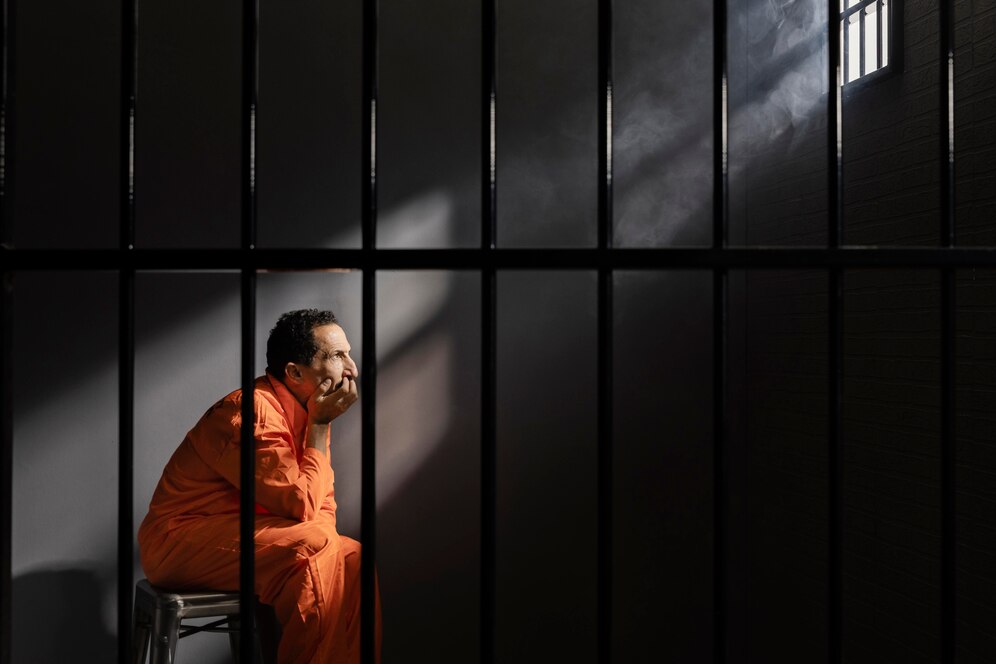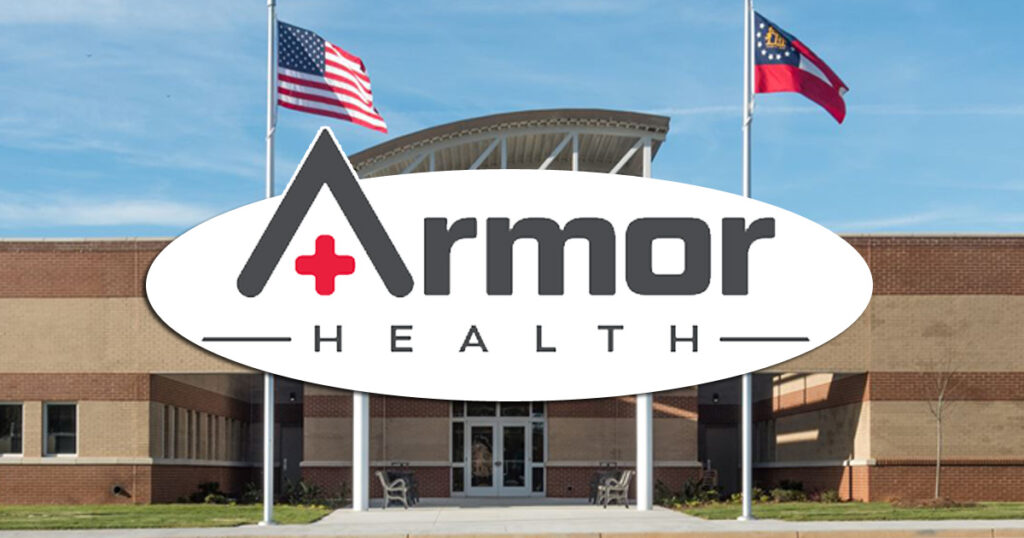Table of Contents
Armor Correctional Health Services bankruptcies have raised concerns among inmates, prison advocates, and legal experts. When a company like Armor Health goes bankrupt, it can leave behind unresolved medical malpractice claims from incarcerated people. These claims often involve serious health issues, like improper medical care, that prisoners cannot easily resolve on their own. The financial troubles of Armor Correctional Health Services have created a complicated legal situation for many who rely on the company’s healthcare services.
Inmates are facing a tough situation where they must fight for justice, despite the fact that many of them do not have access to legal support or information. Without a lawyer, it becomes even harder for prisoners to navigate the bankruptcy process and protect their rights. The issue of Armor Correctional Health Services bankruptcies is not just a legal problem—it’s a humanitarian issue that affects thousands of incarcerated people.
What Armor Correctional Health Services Bankruptcies Mean for Prisoners
Armor Correctional Health Services bankruptcies have a big impact on prisoners who depend on healthcare while in jail or prison. These bankruptcies happen when a company, like Armor Health, can’t pay its debts and has to shut down or sell off parts of its business. When this happens, many prisoners lose the health care they need. The company may not have enough money to take care of medical claims or pay for past medical treatments.
Prisoners who have been harmed due to bad medical care may not be able to get compensation. They might not know how to handle their cases without a lawyer. This is a huge problem because it leaves inmates without the help they need to fight for their rights. They may end up with worse health problems because they can’t get the care they need or the money to go to court.
The bankruptcy also leaves prisoners in a tough spot when it comes to medical malpractice claims. Many prisoners have already filed lawsuits due to medical mistakes that happened while they were under Armor Health’s care. With the bankruptcy, these claims get delayed. Prisoners who were waiting for money from these lawsuits may never see it.
How Armor Correctional Health Services Bankruptcies Are Impacting Inmate Healthcare

Armor Correctional Health Services bankruptcies cause more than just legal problems; they also impact the quality of healthcare for prisoners. When a prison healthcare company goes bankrupt, it can no longer afford to provide the same level of care it did before. This often means that prisoners get less attention for their medical needs.
- Delayed Treatments: When Armor Health goes bankrupt, treatments may be delayed or canceled. Prisoners who need urgent medical care could be left waiting for a long time.
- Reduced Medical Staffing: The bankruptcy may lead to fewer doctors, nurses, and other healthcare staff. This means fewer people are available to help prisoners with their medical problems.
- Fewer Resources: Hospitals and clinics in prisons may not have enough money to buy medicine or equipment. Prisoners may not get the necessary tools for their health issues.
Inmates may also face difficulties in seeing outside doctors for serious problems. Armor Health’s bankruptcy could mean that these vital services are no longer available, and prisoners could suffer without proper care.
Why Armor Correctional Health Services Bankruptcies Should Concern Prison Reform Advocates
Prison reform advocates are deeply concerned about Armor Correctional Health Services bankruptcies because it highlights the bigger problem of how prisons handle healthcare for inmates. Prisoners are already vulnerable, and without proper medical care, they are even more at risk.
- Lack of Accountability: With a bankruptcy, the company may not be held accountable for its past mistakes. This could set a dangerous precedent for other prison healthcare companies that might try to do the same.
- Rising Risks: If Armor Health’s bankruptcy isn’t handled carefully, other health companies might try to do the same thing. This could lead to even more prisoners being denied proper care.
- Failure to Protect Rights: Inmates’ rights to fair and adequate medical care are essential. Bankruptcy could make it harder for prisoners to get justice and may lead to long-term harm.
Prison reform groups argue that the government should step in to make sure prisoners still get the care they need. They believe it’s unfair for inmates to suffer because a company went bankrupt. Advocates hope the legal system will address these concerns and make sure it doesn’t happen again.
Exploring the Legal Hurdles Inmates Face in Armor Correctional Health Services Bankruptcies

When Armor Correctional Health Services bankruptcies happen, inmates face many legal challenges. Most prisoners don’t have lawyers to help them. This is called “pro se” representation, which means they have to represent themselves in court. This can be very difficult, especially when they don’t have access to information or legal support.
Major Legal Issues Prisoners Face:
- Limited Access to Legal Resources: Prisoners don’t have easy access to legal books, experts, or advice. This makes it hard for them to understand how bankruptcy works and what steps to take next.
- Missed Deadlines: Inmates rely on prison mail, which can be slow. Important legal documents may not reach them in time, making it impossible to act quickly.
- Difficulty Filing Claims: Even if prisoners know they need to file a claim, they may not know how to do it properly without help from a lawyer. This can delay or even stop them from seeking justice.
The legal system must consider how difficult it is for prisoners to fight for their rights during a bankruptcy. Without the proper resources, they could lose their chance to seek compensation or hold the company accountable.
Can Inmates Get Justice After Armor Correctional Health Services Bankruptcies?
One of the biggest questions surrounding Armor Correctional Health Services bankruptcies is whether prisoners can still get justice. In theory, bankruptcy should help resolve legal claims, but for inmates, it often makes things worse. Bankruptcy could delay or even prevent them from receiving compensation for their injuries.
- Global Settlements: Sometimes, the company in bankruptcy tries to settle all the claims at once, offering a lump sum. But this doesn’t always cover what prisoners are owed. Many prisoners believe that these settlements are unfair and too low.
- Legal Action Delays: If inmates don’t agree with the settlement, they may have to wait even longer to get their day in court. The bankruptcy process can drag on, leaving many prisoners without the justice they deserve.
In many cases, prisoners have to keep fighting just to have their voices heard. Some may even have to take their claims to a higher court, which could take years. The question remains—will Armor Health’s bankruptcy make it harder for inmates to get the justice they need, or will they eventually have a chance to make things right?
Conclusion
Armor Correctional Health Services bankruptcies show how hard it can be for prisoners to get the healthcare they need. When companies go bankrupt, prisoners lose out on medical care and often can’t get justice for their injuries. Without lawyers or easy access to information, many inmates struggle to make their voices heard in court. This creates a big problem for their health and their legal rights.
It’s important for prison reform advocates to keep fighting for prisoners’ rights and for better healthcare in prisons. Even when companies like Armor Health go bankrupt, inmates should still have a chance to get the care they deserve. Hopefully, lawmakers and the legal system can find better ways to protect prisoners and make sure they get fair treatment, even during a bankruptcy.
FAQs
Q: What are Armor Correctional Health Services bankruptcies?
A: Armor Correctional Health Services bankruptcies occur when the company responsible for providing healthcare in prisons files for bankruptcy, often leaving medical malpractice claims unresolved.
Q: How do Armor Correctional Health Services bankruptcies affect prisoners?
A: These bankruptcies delay or deny prisoners’ access to medical care, making it harder for them to get treatment or seek compensation for poor medical care they received.
Q: Can prisoners still get justice after Armor Health goes bankrupt?
A: It’s difficult. Prisoners may have to wait a long time, and some may not get fair settlements or have enough resources to pursue legal claims on their own.
Q: Why can’t prisoners get legal help during Armor Correctional Health Services bankruptcies?
A: Many prisoners don’t have access to lawyers or legal resources, so they have to represent themselves, which makes it hard to navigate complex legal processes like bankruptcy.
Q: What happens to medical malpractice claims during Armor Health’s bankruptcy?
A: Many malpractice claims get delayed or caught up in the bankruptcy process, leaving prisoners uncertain if they will ever get compensated for their injuries.
Q: How can prison reform advocates help during Armor Correctional Health Services bankruptcies?
A: Advocates can push for better access to justice for prisoners, ensuring they receive fair treatment, legal representation, and proper healthcare even when companies go bankrupt.


